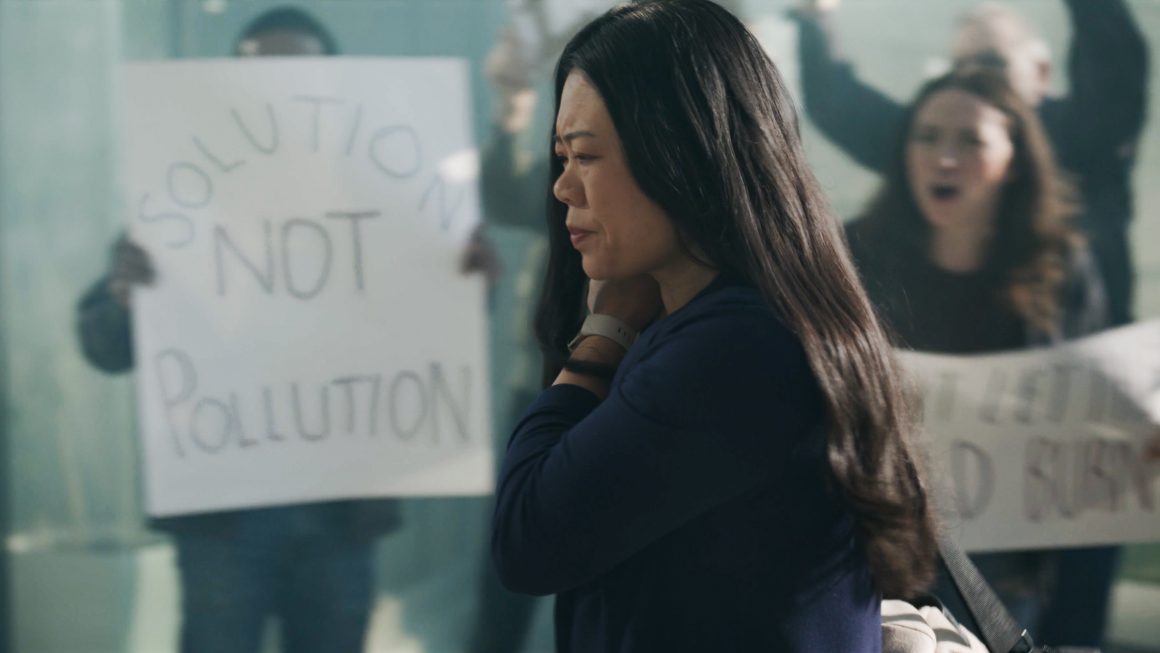
CIFF 2023: Open your mind to climate optimism with Thomas Acton’s Close The Divide
By Leonie O’Sullivan, September 26 2023—
Before watching Close The Divide, directed, co-written and produced by Thomas Acton, I must admit I had a pretty narrow view of the climate change crisis. My outlook on the future was dim, and I couldn’t understand how climate change deniers came to be. I had a chance to speak with Acton before viewing the documentary.
“I think that there is mass confusion in the world related to climate change,” said Acton. “We are facing a problem that is drastically more complex than just taking one side on this. We need to examine … why we are becoming tribal and really showcase how we can move forward in a positive way.”
The film premiered at the Calgary International Film Festival (CIFF) on Sept. 22. It was an experience that was night and day compared to your typical cinema trip. The theatre was packed and bustling with excitement to watch Close The Divide on the big screen for the first time. It was a truly intimate environment as everyone cheered during the title sequence.
Then we were brought into the world of environmental catastrophe. Extreme weather events, climate anxiety, protests — young versus old, left versus right. The world is polarised in panic, but what does that achieve? Why does this happen?
“I think because we are so uncertain about how to [combat the climate crisis] and even what the issues are, people are seeking comfort and certainty. So people surround themselves [with] like-minded individuals and then seek out information that justifies the way they want to feel about something, which is confirmation bias,” said Acton.
It is against our nature to seek out opposing narratives so we tunnel further into our own beliefs. Can we stop and question if we are stuck in our own biassed kingdoms? In order to close the divide, we need to interact with individuals of different perspectives and bring honesty and humility to the conversation.
Acton explored the causes of climate change in the film. The energy sector is the biggest player, producing a whopping 75 per cent of greenhouse gases. This industry is highly reliant on burning fossil fuels but the type of fossil fuel is critically important. Coal is dirty but cheap, and oil and gas are cleaner but more expensive. This has left developing countries behind to suffer the effects of burning coal, the affordable option.
Close The Divide did an important job of highlighting carbon inequality in the world. 730 million people live without electricity worldwide and an American person’s fridge uses as much energy as an individual in Africa does. We cannot fix the climate crisis in first-world nations alone. This has to be a global effort. We must bring everyone with us, and ensure they have access to clean energy.
The goal of fighting the climate crisis is to reach net zero emissions. With our current technology, we still need large-scale oil and gas for a dispatchable energy source. Solar and wind are too dependent on weather to be dominant or reliable sources. Only when we have grid-level battery storage will they be used on a larger scale, and this milestone might not be too far ahead in our future.
Acton spoke with Dr. Jiaying Zhao, an associate professor at the University of British Columbia, who studies human behaviour and is featured in the film. She told him that they did a poll at UBC, and found that 84 per cent of their students feel depressed about climate change. Acton had a message for the University of Calgary.
“A lot of the narrative that I think the students at the U of C are hearing is filled with doom and gloom. If we don’t do something now, if we don’t stop how we are acting, essentially we are screwed. One message I would give to the students is that [this] message doesn’t work in terms of motivating human behaviour and also I don’t think it’s true. I think that there is tremendous possibility for us in the future and that human innovation and ingenuity is going to overcome this great crisis that we [are] facing,” said Acton. “The future is unwritten and that’s a great thing.”
The film received a well-deserved standing ovation at CIFF. Close The Divide brilliantly brought a diverse group of educated speakers together to speak optimistically about our future while easing anxiety. Some individuals may question their ethics in probing an optimistic look at climate change — but I think it’s important to take panic out of the equation and expand our minds to solve this problem together.
